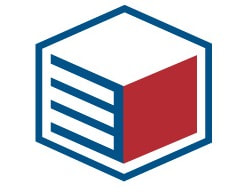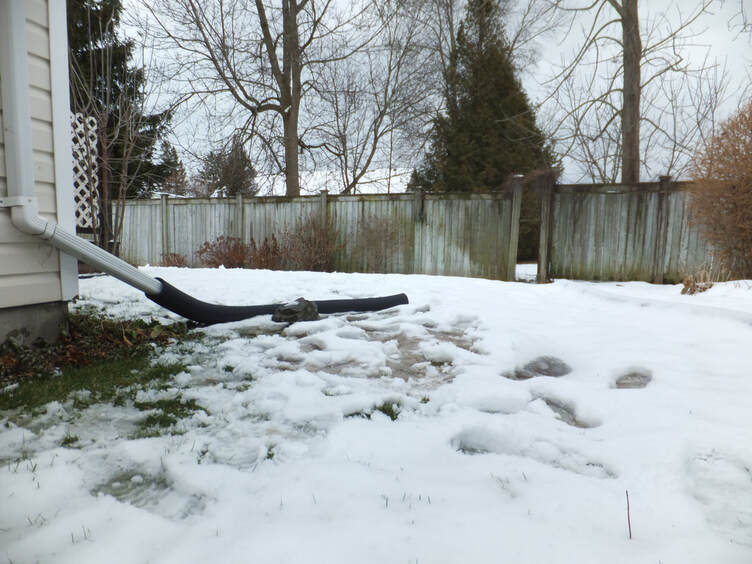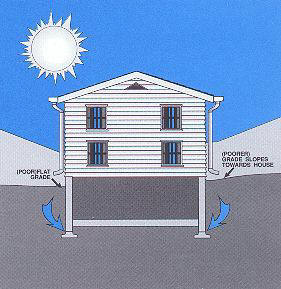|
Freezing rain is defined as rain kept at below-freezing temperatures by the surrounding air, which subsequently freezes on contact with things like roofs, trees and roads. Freezing rain is comprised of liquid droplets - unlike snow, ice pellets, or hail. Water droplets are supercooled while falling through below-freezing air at higher altitudes, then freezing upon contact with any surface at ground level. The resulting glaze ice can build up to a thickness of several centimeters, adding weight to trees and buildings, and making travel very difficult.
Rain on Frozen Ground: Periods of heavy rain can cause flooding in some places at any time of the year, and if you combine rain with frozen ground, the flooding becomes worse. Heavy rain is less prevalent during Canadian winters, but when it does happen it can make a real mess - and with the way weather is trending in recent years, will likely happen more often. Homeowners and building managers need to prepare as best as possible, for when these weather events occur. Short of flash floods and other calamitous events affecting entire neighbourhoods, which can be all but impossible for individuals to protect against, there's a lot homeowners can do to limit damage to their property during today's ever-changing winter weather. Sump pumps can help guard against basement wetting, and basements in modern homes are more resistant to seepage, however pumps can fail and basements aren't boats. Protecting a basement from water ingress starts with reducing the amount of water accumulation around the outside of foundations. In the majority of cases where water has entered a basement, the source of the water can be traced back to the roof of the same house. Storm and melt water will run off wetted or frozen soil, as well as other surfaces like drives and walkways, so it is important these surfaces be sloped away from foundations. It is also important that gutter downpipes discharge roof water beyond any point at which it can pond near foundations. Basement waterproofing and water control systems can be implemented in the majority of homes, however the best defence begins with storm water management, including an effective roof drainage system and good lot grading - which in the majority of cases provide the necessary mitigation at a substantially lower cost.
0 Comments
Leave a Reply. |
AuthorGil Strachan is a professional home inspector, representing Electrospec Home Inspection Services in east-central Ontario since 1994. CategoriesAll Appliances Buying And Selling Cooling Electrical Environmental Exterior Health And Safety Heating Home Improvement Home Inspection Insulation Insurance Interior Plumbing Roofing Special Structure Archives
January 2024
|



